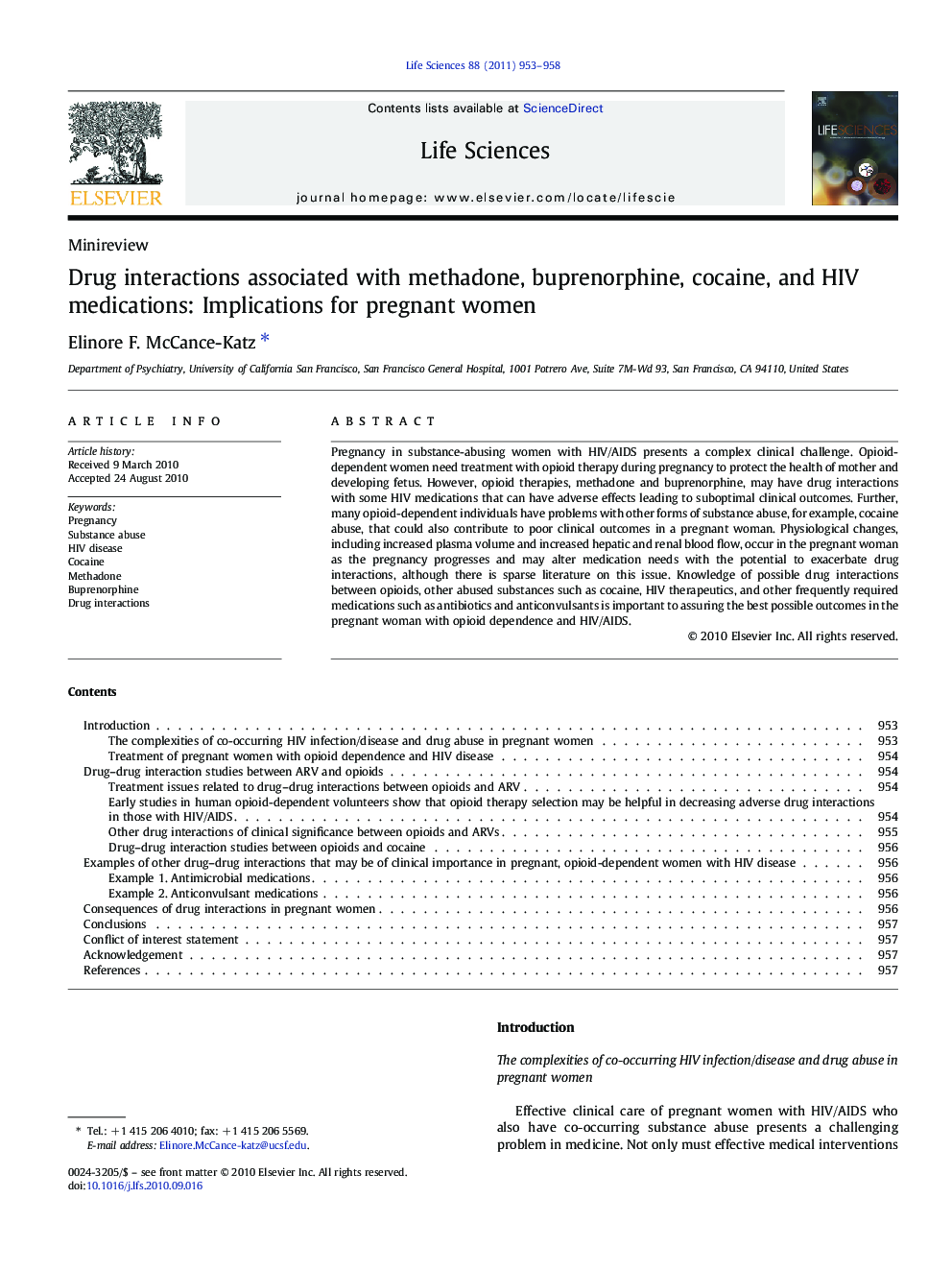| Article ID | Journal | Published Year | Pages | File Type |
|---|---|---|---|---|
| 2552176 | Life Sciences | 2011 | 6 Pages |
Pregnancy in substance-abusing women with HIV/AIDS presents a complex clinical challenge. Opioid-dependent women need treatment with opioid therapy during pregnancy to protect the health of mother and developing fetus. However, opioid therapies, methadone and buprenorphine, may have drug interactions with some HIV medications that can have adverse effects leading to suboptimal clinical outcomes. Further, many opioid-dependent individuals have problems with other forms of substance abuse, for example, cocaine abuse, that could also contribute to poor clinical outcomes in a pregnant woman. Physiological changes, including increased plasma volume and increased hepatic and renal blood flow, occur in the pregnant woman as the pregnancy progresses and may alter medication needs with the potential to exacerbate drug interactions, although there is sparse literature on this issue. Knowledge of possible drug interactions between opioids, other abused substances such as cocaine, HIV therapeutics, and other frequently required medications such as antibiotics and anticonvulsants is important to assuring the best possible outcomes in the pregnant woman with opioid dependence and HIV/AIDS.
